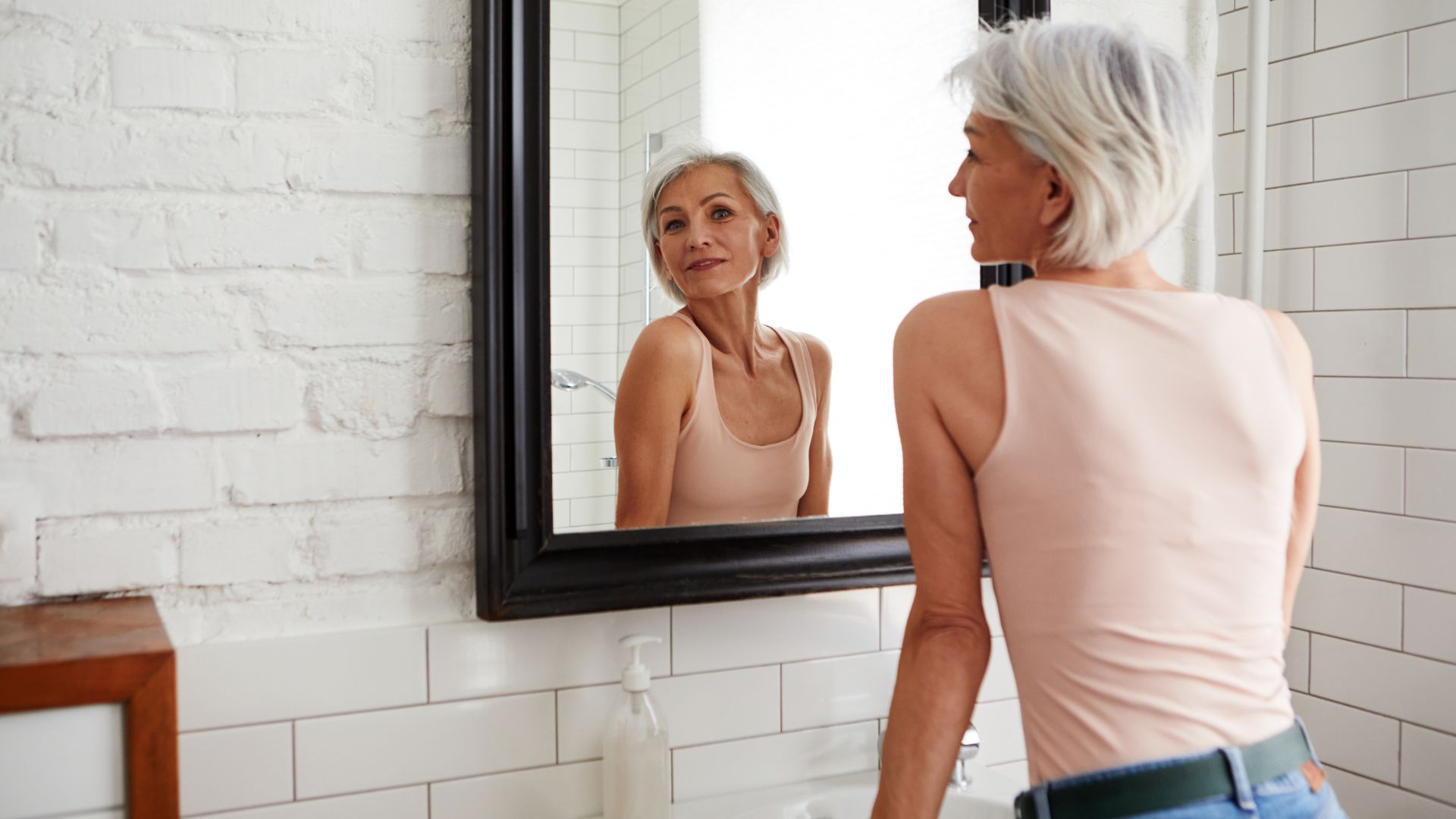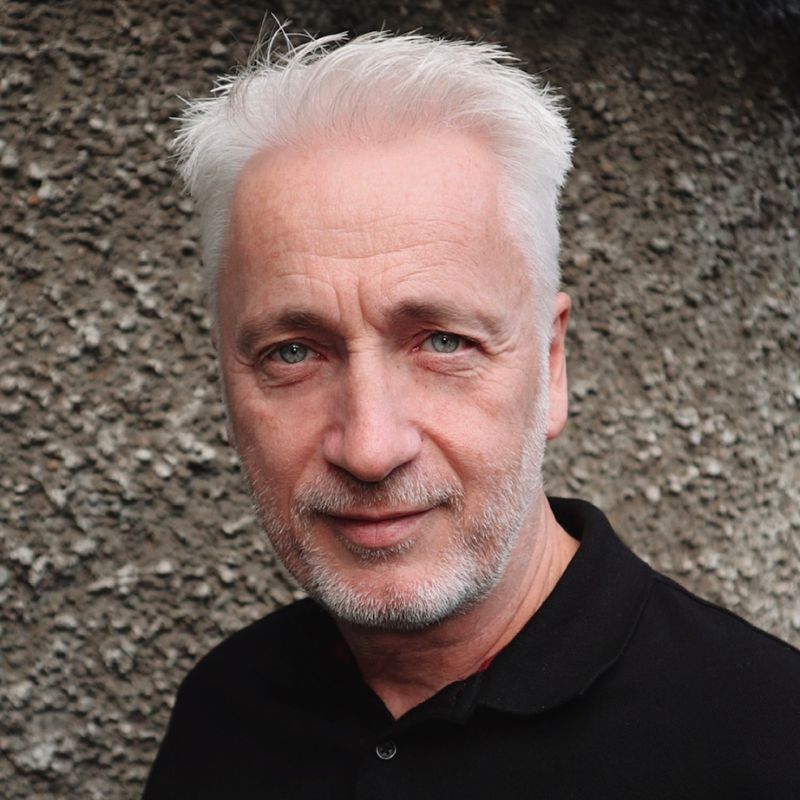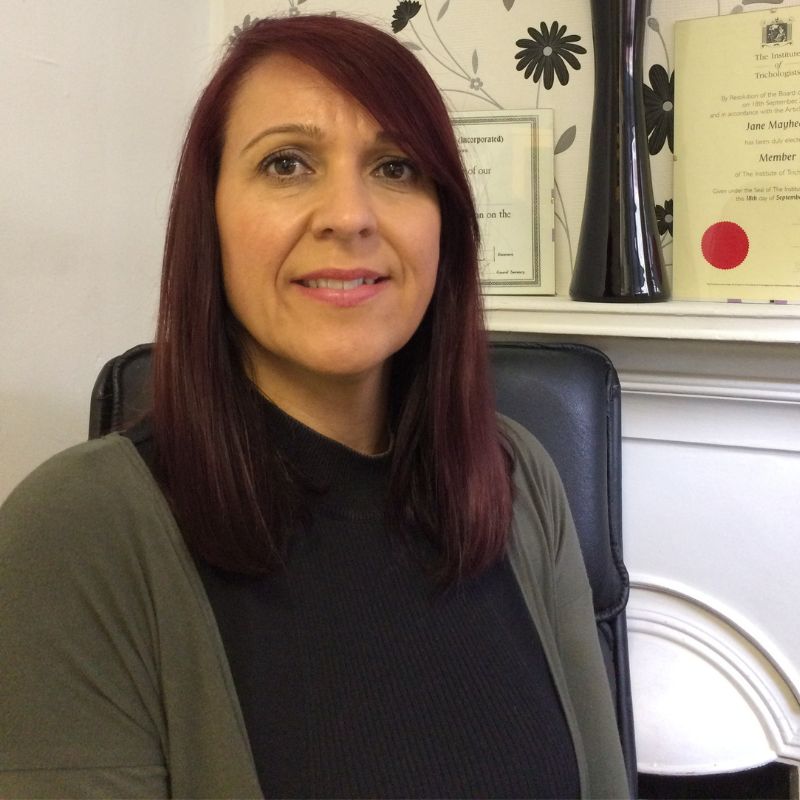How to stop thinning hair - 6 ways to prevent hair from falling out
Expert trichologists and restoration specialists reveal how to stop thinning hair and boost regrowth with at-home and professional solutions

Knowing how to stop thinning hair is all about understanding what causes hair to thin and shed in the first place, whether it's lifestyle factors you can change or conditions you'll need additional help with.
Given that hair can be a huge part of our identity, it's understandably distressing to see it change before you. There are numerous causes of thinning hair, ranging from lifestyle habits to genetic conditions. Signs your hair might be thinning - rather than falling out - include having patches where the hair is thinner, seeing your scalp through your hair, and tying up a smaller ponytail.
The good news is that hair thinning can be treated. "Treatment for female hair loss needs to be targeted and completely individual to the specific diagnosis and any scalp issues that may be triggering it," says hair restoration specialist Michael Mouzakis, of The Private Clinic.
How to stop thinning hair
1. Get professional help
If you notice changes to your hair density or patches where your hair is noticeably thinner, speak to a medical professional. Getting help from a GP or trichologist early will hopefully mean a diagnosis can be made and medical or cosmetic treatment started as soon as possible.
Eva Proudman, a certified trichologist and the chairperson of the Institute of Trichologists, says professional treatment is also a multi-pronged approach. "I see many women presenting with two or three different conditions that all need to be treated to get the best results. For example, hairline recession or thinning can be due to autoimmune conditions that destroy the growing unity of hair, leaving a scar behind and no possibility of regenerating the lost hair. However, with early diagnosis and various treatment options, these conditions can be managed to keep as much hair as possible."

Eva Proudman is a clinical trichologist, who specialises in all areas of hair and scalp health. With her very own Harley Street clinic, Eva is one of the UK’s leading hair specialists with over 20 years of industry experience.
2. Keep an eye on your diet
What you eat, and what you don't eat, can have a real impact on your hair health. If your body doesn't get enough protein, vitamins and minerals like iron, vitamins B12 and C, you might be more likely to see more hair shedding and thinning.
"Maintaining a balanced, nutritious diet rich in vitamins and minerals - particularly iron and biotin - supports overall hair health," says Steven Goldsworthy, hairdresser and trichologist.
Sign up to our free daily email for the latest royal and entertainment news, interesting opinion, expert advice on styling and beauty trends, and no-nonsense guides to the health and wellness questions you want answered.
Nutritionist and founder of The Better Menopause, Joanna Lyall agrees. "You need biotin for healthy hair. It supports keratin production, a protein needed for hair strength and growth.”
As well as supplements, there are plenty of foods high in vitamin C and foods rich in magnesium, sodium, and calcium that you can add to your daily diet.

Spinach and other leafy green vegetables are high in vitamin C.

Steven Goldsworthy is a trichologist and award-winning hairdresser who has a salon and clinic in Swindon.
3. Gentle hair care
One of the first steps to take when learning how to stop thinning hair is to treat your hair more carefully when you wash and style it, using products kinder to the proteins in your hair, such as the best shampoo for fine hair and conditioners for thinning hair.
Goldsworthy also recommends avoiding excessive heat styling treatments, tight hairstyles, perming, and dying your hair if you want to prevent further loss and make your hair grow faster. "Regular scalp massages also enhance blood circulation, promoting healthier hair growth," he says.
Trichologist Jane Mayhead, also from The Private Clinic, says: "Look for a gentle hair brush that is kinder to the hair and scalp. Avoid hot showers, use lukewarm water instead. Hot water can dry and strip the scalp of its natural oils and avoid over-washing it too."

Jane graduated from the Institute of Trichologists in 1993 and has since worked at some of the UK’s most respected hair clinics. She is a well-known campaigner for women with alopecia and has set up a support group in her local hometown of Rochester to help those who suffer from the condition. She believes in a holistic approach to treatment and focuses heavily on dietary plans to ensure patients’ wider health is considered.
4. Medication
A GP or trichologist may also recommend certain medications if you want to know how to stop thinning hair quickly. These can both prevent further loss and may help your hair regrow.
"Understanding the causes of hair loss is the best way to determine which type of hair loss treatment or medication will be most effective. More of us are becoming aware of the increasing number of treatments and solutions to treat hair loss and thinning, like medication, shampoos, lotions, and dietary supplements," says Mouzakis.
"While these may help some patients, there are two types of hair thinning medication with proven results. These are finasteride and minoxidil," he says. Minoxidil is a foam or solution put on the scalp to stimulate hair regrowth in women with female-pattern hair loss. Finasteride is a tablet-based medication traditionally used to treat male-pattern hair loss.
However, medications like these are not available on the NHS when prescribed for hair loss.

Michael P. Mouzakis M.D. is a plastic surgeon with a special interest in hair restoration. Mr Mouzakis is a Consultant Plastic Surgeon working at The Private Clinic’s London Harley Street and Northampton clinics. He also holds an NHS post as a Locum Consultant and Skin Cancer Specialist. He has more than 9 years of experience and has performed more than 3,000 procedures.
5. PRP therapy
Platelet-Rich Plasma (PRP) therapy can promote hair growth in areas where you've experienced hair thinning. The process involves taking a small amount of blood and separating it in a centrifuge.
"The platelet-rich plasma contains stem cells and growth factors separate from your blood. This is then injected into the scalp. The growth factors can then stimulate the activity of the hair follicles and promote hair growth," says Mouzakis.
The obvious downside of this type of treatment is that it doesn’t come cheap, with a single session costing up to £500. It may take three or four sessions before you notice a difference, taking the bill into the thousands.
6. Take vitamin D
The benefits of vitamin D don't extend only to supporting your bone and skin health - it can help you get healthier hair too. This essential vitamin supports hair strands in their growing phase and can help generate new hair follicles, so keeping your levels topped up is essential.
"Many of us are low or deficient in vitamin D, with the general advice to take a 1000IU supplement daily to keep ourselves in the normal range," says Proudman.
However, too much vitamin D can equally cause health issues so always speak to your doctor before taking any new supplements or significantly changing your diet.
7. Female hair transplant
A hair transplant is another more drastic way of stopping your hair from thinning but Mouzakis says for some women it might be the best way of restoring areas where hair has been lost.
"A female hair transplant procedure should only be performed once the cause of hair loss has been established," he says. "This often requires the patient to have a consultation with a trichologist before a hair transplant surgeon. They will be able to identify the source of hair loss and advise whether or not restoration surgery is a good option and likely to be successful."
A hair transplant surgeon with experience in this type of procedure should do this procedure, so always research the qualifications of your practitioner before booking an appointment.
Why is my hair thinning so rapidly?
If you've gone from having healthy, thick hair to your hair thinning almost overnight, a few factors might be to blame. "A strict calorie-controlled and food-restricted diet - less than 1,000 calories daily - can cause hair to start shedding quickly due to the lack of nutritional support," says Proudman.
Severe illness (such as pneumonia or Covid-19), undergoing an operation or having high levels of emotional stress can also cause rapid shedding. "In some cases, people develop thyroid conditions and this can cause the hair to shed quickly," she adds.
"Other potential culprits include genetics, certain medications, and health conditions," says Goldsworthy.
When should you talk to your doctor about thinning hair?
If you’ve noticed a change to your hair pattern and thickness then it’s advisable to speak to your GP or a trichologist as soon as possible to find out how to stop thinning hair, especially if you have other symptoms, such as fatigue, weight changes, or skin problems, or a family history of hair loss. "Early intervention often leads to more effective solutions for addressing the root causes of hair loss," says Goldsworthy.
A trichologist will likely have more specific medical experience with hair thinning than your GP. They can use a trichoscope - a camera that magnifies your hair follicles in extreme detail, to check for any issues.
"It is crucial to consult a trichologist when thinning hair is causing distress or impacting self-esteem," he says. "Your trichologist may refer you to a GP to conduct necessary tests, to help evaluate potential underlying causes."

Kat Storr has been a digital journalist for over 15 years after starting her career at Sky News, where she covered everything from world events to royal babies and celebrity deaths. After going freelance eight years ago, she now focuses on women's health and fitness content, writing across a range of UK publications.
From perimenopause to the latest fitness trends, Kat loves researching and writing about it all. She's happy to give any fitness challenge a go and speaks to experts about wellbeing issues affecting people every day.
